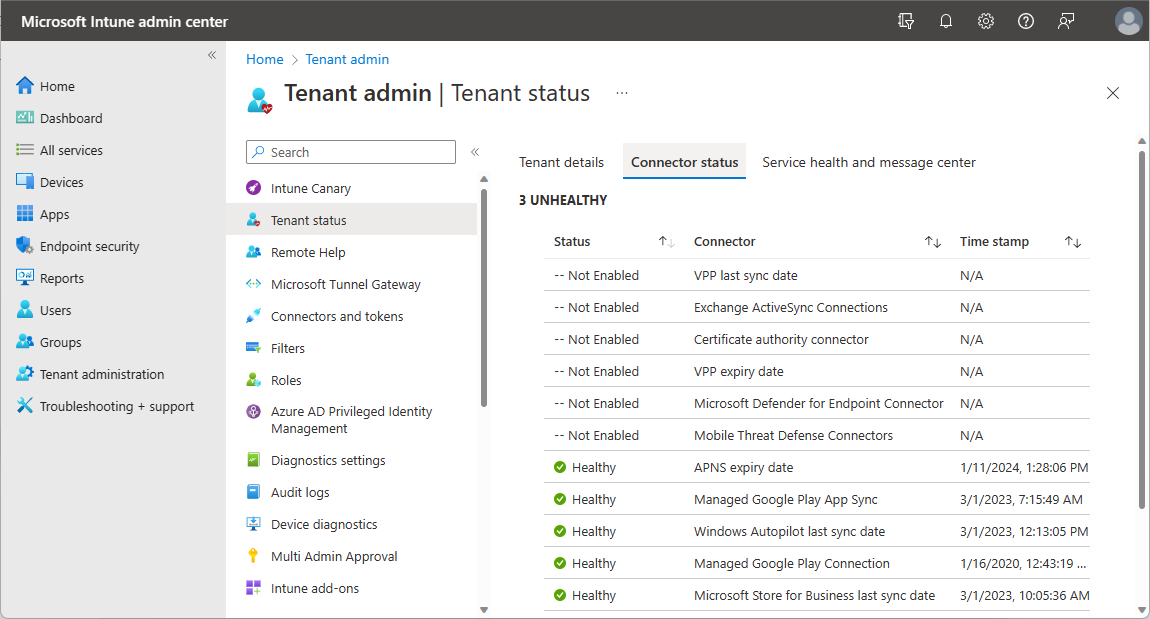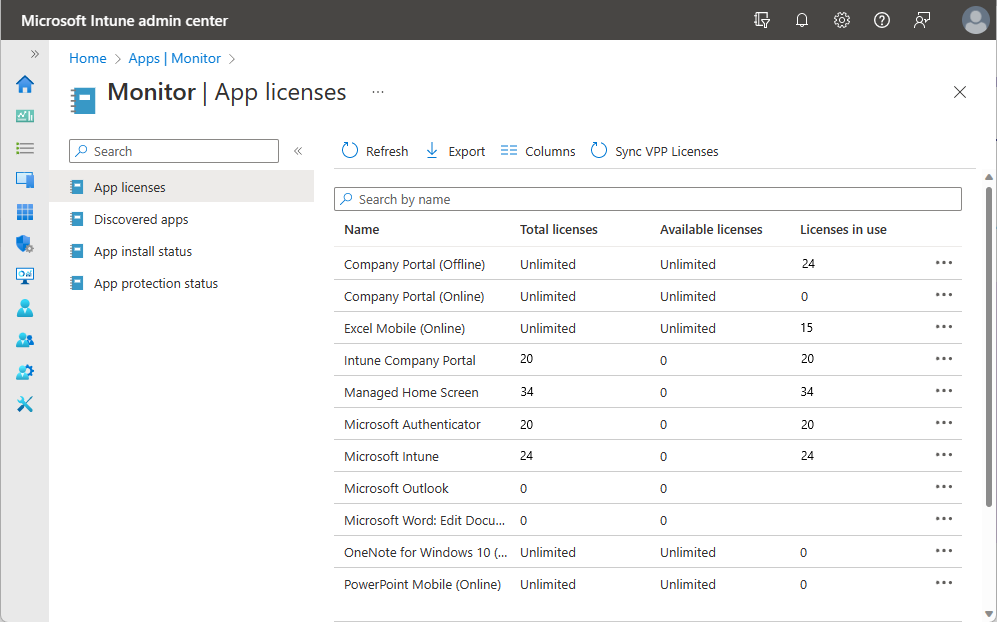Step 5. Manage apps and licenses
Microsoft Intune makes it easy to manage both apps and app licenses used by each member of your organization.
Manage app licenses
There are two areas of Intune used to manage app licenses:
- Connector status is used to keep your app license in sync with the app license provider.
- Monitor app licenses is used to keep your app instances in sync with Intune.
Connector status
Connectors are connections you configure from Intune to external services, such as the Apple Volume Purchase Program service. Connector status is provided as part of the tenant status in Intune. When you view the Connector status in Intune, you are provided with connectors that are unhealthy, connectors with warnings, and connectors that are healthy. In addition, Intune lists connectors that are Not Enabled.

Tip
A tenant is an instance of Microsoft Entra ID. When you set up Microsoft Intune a tenant is created for you. Your subscription to Intune is hosted by a Microsoft Entra tenant.
Monitor app licenses
Using Intune, you can view the licenses in-use, the available licenses, and the total number of licenses for each app.
Manage apps
You can view a list of all apps that have been added to Intune. This list provides details about each app, such as the type, status, and version. Also, the list shows whether the app has been assigned to members of your organization.

App reports
Microsoft Intune reports allow you to more effectively and proactively monitor the health and activity of endpoints across your organization, and also provides other reporting data across Intune. For example, you'll be able to see reports about device compliance, device health, and device trends. In addition, you can create custom reports to obtain more specific data.
The following list provides Intune reports that are specific to apps:
- Managed Apps report (Organizational)
- Reporting tiles
- App Install Status report (Operational)
- Device Install Status report for apps (Operational)
- User Install Status for apps report (Operational)
For additional app information, see Manage apps.
After adding apps to Intune
Once you have completed the above steps, you'll be ready to configure, protect, assign, and monitor the managed apps your organization uses.
For more information about how to proceed, see the following topics: